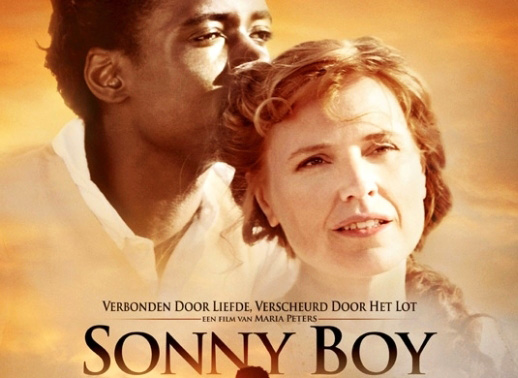
This year, perhaps more than any Oscar year in recent memory, the stage has been set for the Academy of Motion Picture Arts and Sciences to make more relevant choices, forced to do so by the number of prestigious contenders entering the race with palpable Festival buzz from across the globe, not the least of which comes from our own Vancouver film festival.
From Asghar Farhadi’s A Separation to the art-thriller Miss Bala, which has generated considerable crossover appeal among the journalist bloggers who influence Academy decision-making, at the 2012 Oscar ceremony we may be in for the most nourishing winner we’ve seen since Caroline Link’s Nowhere in Africa — VanRamblings’ favourite film of the past decade — took the Best Foreign Language film prize in 2003.
As of this past Thursday, the Academy announced that 63 countries have entered potential nominees for the Best Foreign Language Oscar, to be awarded at the 84th Academy Awards the evening of February 26, 2012. The Academy’s Foreign Language Committee will review all the submissions and vote for the five nominees. The final five nominees will be announced the morning of Tuesday, January 24, 2012 at 5:30 a.m. PT.
The films that appear to be the primary frontrunners include Vancouver International Film Festival Audience Award winner, A Separation (Iran), Nadine Labaki’s Toronto Film Festival Audience Award winner Where Do We Go Now (Lebanon), Anne Sewitsky’s Happy, Happy (Norway), Aki Kaurismäki’s Le Havre (Finland), Agnieszka Holland’s In Darkness (Poland), Monsieur Lazhar (Canada), and The Flowers of War (China).
The official submissions for the Best Foreign Language Oscar are:
Albania, “Amnesty,” Bujar Alimani, director;
Argentina, “Aballay,” Fernando Spiner, director;
Austria, “Breathing,” Karl Markovics, director;
Belgium, Bullhead, Michael R. Roskam, director;
Bosnia and Herzegovina, “Belvedere,” Ahmed Imamovic, director;
Brazil, “Elite Squad: The Enemy Within,” José Padilha, director;
Bulgaria, “Tilt,” Viktor Chouchkov, Jr., director;
Canada, “Monsieur Lazhar,” Philippe Falardeau, director;

Chile, “Violeta Went to Heaven,” Andrés Wood, director;
China, “The Flowers of War,” Zhang Yimou, director;
Colombia, “The Colors of the Mountain,” Carlos César Arbeláez, director;
Croatia, “72 Days,” Danilo Serbedzija, director;
Cuba, “Havanastation,” Ian Padrón, director;
Czech Republic, “Alois Nebel,” Tomás Lunák, director;
Denmark, “Superclásico,” Ole Christian Madsen, director;
Dominican Republic, “Love Child,” Leticia Tonos, director;
Egypt, “Lust,” Khaled el Hagar, director;
Estonia, “Letters to Angel,” Sulev Keedus, director;
Finland, Le Havre, Aki Kaurismäki, director;
France, “Declaration of War,” Valérie Donzelli, director;
Georgia, “Chantrapas,” Otar Iosseliani, director;
Germany, Pina, Wim Wenders, director;
Greece, “Attenberg,” Athina Rachel Tsangari, director;
Hong Kong, A Simple Life, Ann Hui, director;
Hungary, The Turin Horse, Béla Tarr, director;
Iceland, “Volcano,” Rúnar Rúnarsson, director;
India, “Abu, Son of Adam,” Salim Ahamed, director;
Indonesia, “Under the Protection of Ka’Bah,” Hanny R. Saputra, director;
Iran, A Separation, Asghar Farhadi, director;
Ireland, “As If I Am Not There,” Juanita Wilson, director;
Israel, Footnote, Joseph Cedar, director;
Italy, “Terraferma,” Emanuele Crialese, director;
Japan, “Postcard,” Kaneto Shindo, director;
Kazakhstan, “Returning to the ‘A,'” Egor Mikhalkov-Konchalovsky, director;
Lebanon, “Where Do We Go Now?” Nadine Labaki, director;
Lithuania, “Back to Your Arms,” Kristijonas Vildziunas, director;
Macedonia, “Punk Is Not Dead,” Vladimir Blazevski, director;
Mexico, Miss Bala, Gerardo Naranjo, director;
Morocco, “Omar Killed Me,” Roschdy Zem, director;
Netherlands, “Sonny Boy,” Maria Peters, director;
New Zealand, “The Orator,” Tusi Tamasese, director;
Norway, Happy, Happy, Anne Sewitsky, director;
Peru, “October,” Diego Vega and Daniel Vega, directors;
Philippines, Woman in a Septic Tank, Marlon N. Rivera, director;
Poland, In Darkness, Agnieszka Holland, director;
Portugal, “José and Pilar,” Miguel Gonçalves Mendes, director;
Romania, “Morgen,” Marian Crisan, director;
Russia, “Burnt by the Sun 2: The Citadel,” Nikita Mikhalkov, director;
Serbia, “Montevideo: Taste of a Dream,” Dragan Bjelogrlic, director;
Singapore, Tatsumi, Eric Khoo, director;
Slovak Republic, “Gypsy,” Martin Sulík, director;
South Africa, “Beauty,” Oliver Hermanus, director;
South Korea, The Front Line, Jang Hun, director;
Spain, Black Bread, Agusti Villaronga, director;
Sweden, “Beyond,” Pernilla August, director;
Switzerland, “Summer Games,” Rolando Colla, director;
Taiwan, “Warriors of the Rainbow: Seediq Bale,” Wei Te-sheng, director;
Thailand, “Kon Khon,” Sarunyu Wongkrachang, director;
Turkey, Once Upon a Time in Anatolia, Nuri Bilge Ceylan, director;
United Kingdom, “Patagonia,” Marc Evans, director;
Uruguay, “The Silent House,” Gustavo Hernández, director;
Venezuela, “Rumble of the Stones,” Alejandro Bellame Palacios, director;
Vietnam, “The Prince and the Pagoda Boy,” Luu Trong Ninh, director.